Episodes
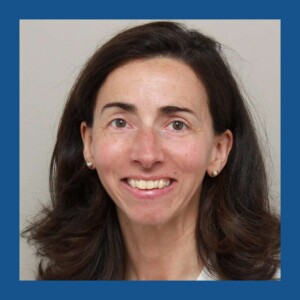
Thursday Dec 22, 2022
Thursday Dec 22, 2022
Tu aimes Papa PhD ? Laisse-moi un commentaire > ici < - une courte phrase suffit ! Et inclus ton identifiant Twitter – comme ça je pourrai te remercier personnellement !
Cette semaine sur Papa PhD, je t'apporte un des épisodes les plus écoutés de la saison 2 de Papa PhD - ma conversation avec Anne Bonlarron, fondatrice de Scienceo. Entre autres, on a parlé CIFRE, être expatrié et arrêt de thèse. On a aussi parlé de ce que fait Anne aujourd'hui, à la croisée des chemins entre la recherche et les entreprises.
Pendant que tu es là, je profite de l'occasion pour t'annoncer que Papa PhD a rejoint l'initiative Podcast 2.0 et est maintenant prêt à recevoir des boosts de ta part ! Un boost est une contribution valeur pour valeur (V4V) en Satoshis (ou Sats), la plus petite dénomination Bitcoin existante.
Tous les boosts reçus feront l'objet d'une mention dans l'émission, en remerciement pour le soutien.
Télécharge l'application Fountain, qui soutient les initiatives Podcast 2.0, et booste l'émission.
J'aimerais aussi apprendre à mieux te connaître. Si tu as 60 secondes, remplis l'enquête auprès des auditeurs en cliquant sur ce lien.
Fais un don à Papa PhD et soutiens le podcast.
Échange d'autocollants : envoie-moi l'autocollant de ton podcast et je t'enverrai un autocollant Papa PhD. J'aimerais bien avoir un mur d'autocollants de mes amis podcasteurs !
Anne Bonlarron a 25 ans d'expérience au croisement de la recherche et de l'entreprise et une connaissance très fine de ce que ces deux mondes s'apportent.
Elle a créé Scienceo il y a 4 ans. Scienceo accompagne les cadres et dirigeants dans la définition de leur stratégie et le développement de leurs compétences au travers de learning expeditions, groupes de travail, évènements sur-mesure, qui croisent expertises de chercheurs, expériences d’entreprises, partage de bonnes pratiques, travail collaboratif, découverte de lieux innovants.
Les ressources de cet épisode :
Anne Bonlarron | LinkedIn
Scienceo.fr | Site Web
Merci Anne !
Si cet entretien avec Anne Bonlarron t'a plu, fais-lui en part en cliquant sur le lien ci-dessous et en lui laissant un message sur LinkedIn :
Clique ici pour la remercier sur LinkedIn !
Clique ici pour partager avec David le principal message que tu retiens de cet épisode !
Si tu trouves de la valeur dans le contenu que je t'apporte chaque semaine, clique sur l'un des boutons ci-dessous et renvoie-moi l'ascenceur :)
Don sécuritaire sur PayPal
Deviens supporter sur Patreon !
Ou paye-moi un café :)
Tu aimeras aussi ces épisodes :
Marie Itoiz – S'outiller pour l'après-doctorat : PapaPhD.com/108
Charlotte Hendryckx – L'aventure du doctorat à l'étranger : PapaPhD.com/193
Jean-Patrick Toussaint – Mieux préparer les doctorants à l'emploi : PapaPhD.com/155
Myriam Beaudry - L'importance de rencontrer d'autres chercheur.e.s pendant ton doctorat : PapaPhD.com/183
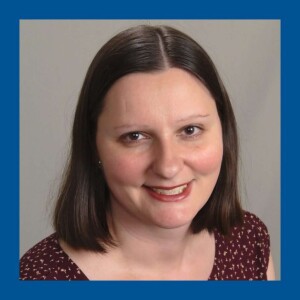
Thursday Dec 15, 2022
Thursday Dec 15, 2022
This week on Papa PhD and to mark the end of the year, I share with you the first of a series of three of the most popular episodes of the show since the launch, in 2019.
In this early conversation with Adriana Bankston, we covered her experience going through graduate school, but also how she started preparing for a career pivot early on. We then went deeper into the specifics of entering the science policy space, and of how Adriana navigated that transition after her PhD in biochemistry.
Adriana Bankston is Principal Legislative Analyst at the University of California Office of Federal Governmental Relations in Washington, DC. Prior to this position, she was a Policy & Advocacy Fellow at The Society for Neuroscience (SfN), where she provided staff support for special and on-going projects, including SfNs annual lobby event and the society’s annual meeting. In addition to working at UC, Adriana also serves as the Director of Communications and Outreach for the Journal of Science Policy and Governance (JSPG) and is an Associate Member of the Public Policy Committee with the American Society for Cell Biology (ASCB). For the past several years, Adriana has also been an active member in the non-profit organization Future of Research (FoR), where she is currently the Vice-President and has previously served as the Associate Director of Fundraising and Strategic Initiatives. Adriana received her B.S. in Biological Sciences from Clemson University and her Ph.D. in biochemistry, cell and developmental biology from Emory University.
Leave a review on Podchaser !
Support the show !
Adriana Bankston's Pearls of Wisdom:
“When you’re in academia, everyone is a PhD, and everyone is like you, but when you’re here, it’s not, because most people in the office have totally different backgrounds, which is really interesting – you get to work with people who are from different worlds and all work together in this space. And having that research background is useful.”
“Take advantage of university resources that exist or create them, if you can. Get involved with things that you’re interested in nationally, if there is an organization, which there probably is. Or talk to people who have jobs that you want to do.”
“I think you have to just have that mindset that your career is as important as your bench work, and that’s something you have to cultivate over time. It’s going to take a while to build your CV for whatever you want to do, if it’s not academic, so start early during your PhD.”
“A lot of jobs work through networking, so if you can get your name out there and people know that you are interested, and you’ve started building your CV, then once you apply for the job, you’re a little more ahead than other people. Because you can imagine that tons of people apply for the same job. So thinking about what it is that will make you stand out, but being able to have a network and people know you already before you apply, or when you apply.”
Adriana's links: Adrianabankston.com; Twitter: @AdrianaBankston; www.LinkedIn.com/in/adrianabankston; www.futureofresearch.org; www.sciencepolicyjournal.org; louisville.edu/medicine/grad-postdoc/craft-seminar-series.
NOTE: This post represents Adriana Bankston's personal views and not the views of her employer (University of California).
Thank you, Adriana Bankston!
If you enjoyed this interview with Adriana, let her know by clicking the link below and leaving her a message on Twitter:
Click here to thank Adriana Bankston on Twitter!
Click here to share your key take-away from this interview with David!
This episode’s resources:
Adriana Bankston | LinkedIn
Adriana Bankston | Twitter
You might also like the following episodes:
Kerri Twigg – Retelling Your PhD Career Story
Matteo Tardelli – Leading Informational Interviews as a PhD
Simon Moore – The Reality of Working in Industry as a PhD
Kirsten Sanford – Science communication
Launching your podcast?
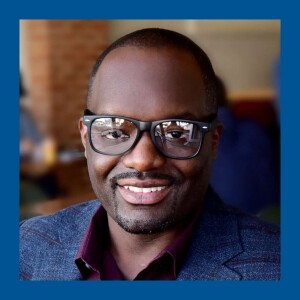
Thursday Dec 08, 2022
Thursday Dec 08, 2022
This week on Papa PhD, I'm bringing you an expert on how to improve your public speaking skills - Neil Thompson of TeachTheGeek.com.
If you want to get better a presenting in front of different audiences, get a pen and paper and join us on this great Papa PhD conversation!
While you're here, I'll take the opportunity to announce that Papa PhD has joined the Podcast 2.0 initiative and is now set up to receive boosts from you, the listener! A boost is a value for value (V4V) contribution in Satoshis (or Sats), the smallest existing Bitcoin denomination.
All received boosts will get a shoutout on the show, in appreciation for your support.
Please check out the Fountain Podcast App that supports Podcast 2.0 initiatives and boost the show .
Also, I'd love to get to know you better. If you have 60 seconds please fill out the listener survey in this link. Donate to the show and Support this podcast.
Send a Sticker Get a Sticker: Send me your show sticker, and I will send you a Papa PhD Sticker. I'd love to have a wall of podfriend stickers!
VIDEO
https://youtu.be/L7WSpDhy63U?sub_confirmation=1After one too many failed presentations, Neil, an engineer, knew he had to improve. He did so, and now he works with technical professionals like himself to improve their communication skills. He hosts a podcast, the Teach the Geek podcast, interviewing technical professionals about their public speaking journeys. He is also author of the book, Teach the Geek to Speak: a No-Fluff Public Speaking Guide for STEM Professionals.
Thank you, Neil Thompson!
If you enjoyed this conversation with Neil, let him know by clicking the link below and leaving him a message on LinkedIn:
Send Neil Thompson a thank you message on Twitter!
Click here to share your key take-away from this interview with David!
This episode’s resources:
Neil Thompson | Twitter
Neil Thompson | Linkedin
Teach The Geek | Instagram
Teach The Geek | Website
You might also like the following episodes:
Martha Boeglin – Unlocking Your Thesis Writing Super Powers
Anushka Khasnobish – The Power of Mentorship During a Career Pivot
Terence Milstead – A Roadmap to Pivoting Into the Private Sector
Natalia Bielczyk – Figuring Out Where You Fit in the Job Market as a PhDAs always, if you find value in Papa PhD and in the content I bring you every week and if you're not a nerd like me and don't want to delve into Podcast 2.0, click on one of the buttons below and send some of that value back to me by becoming a supporter on Patreon or by buying me a coffee :)
Support the show on Patreon !
Or buy me a coffee :)
Get the Papa PhD Career Readiness Tool kit !
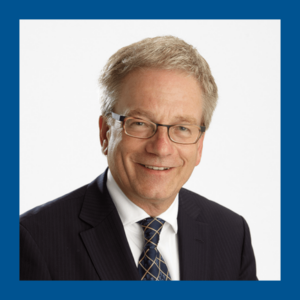
Thursday Dec 01, 2022
Thursday Dec 01, 2022
La semaine où je célébrais le 200e épisode de Papa PhD, j’ai eu le plaisir d’interviewer un invité d’honneur - Rémi Quirion, le scientifique en chef du Québec - pour entendre son point de vue sur le doctorat et sur l’avenir des PhD sur le marché du travail.Durant l'enregistrement j'ai posé à Rémi les questions que vous m'avez envoyées et celles que ont été partagées en direct, sur Linkedin ou sur YouTube. Et Rémi à répondu à toutes mes questions, de la pertinence du doctorat en 2022 aux programmes offerts à la relève en recherche par les FRQ à la question de la professionnalisation et de la rémunération des doctorantes et des doctorants, donc c'est un épisode à écouter avec crayon et papier !Pendant que tu es là, je profite de l'occasion pour t'annoncer que Papa PhD a rejoint l'initiative Podcast 2.0 et est maintenant prêt à recevoir des boosts de ta part ! Un boost est une contribution valeur pour valeur (V4V) en Satoshis (ou Sats), la plus petite dénomination Bitcoin existante.Tous les boosts reçus feront l'objet d'une mention dans l'émission, en remerciement pour le soutien.Télécharge l'application Fountain, qui soutient les initiatives Podcast 2.0, et booste l'émission.J'aimerais aussi apprendre à mieux te connaître. Si tu as 60 secondes, remplis l'enquête auprès des auditeurs en cliquant sur ce lien. Fais un don à Papa PhD et soutiens le podcast.Échange d'autocollants : envoie-moi l'autocollant de ton podcast et je t'enverrai un autocollant Papa PhD. J'aimerais bien avoir un mur d'autocollants de mes amis podcasteurs !
VIDÉO
https://youtu.be/oRfwpkKXAkoRémi Quirion est un chercheur québécois en neurosciences. Auteur de plus de 750 publications dans des revues scientifiques reconnues, il est l’un des chercheurs en neurosciences les plus cités dans le monde et récipiendaire de nombreux prix et distinctions.En juillet 2011, il est nommé scientifique en chef du Québec par le gouvernement du Québec devenant ainsi le premier à assumer la fonction.Il est le premier dirigeant des Fonds de recherche du Québec (FRQNT, FRQS, FRQSC) et préside, depuis septembre 2011, le Réseau international des scientifiques en chef et conseillers scientifiques (INGSA). Il devient ainsi le premier président francophone de cette organisation qui regroupe plus de 5 000 membres répartis dans environ 110 pays.
Les ressources de cet épisode :
Rémi Quirion | LinkedInRémi Quirion | TwitterScientifique en chef du Québec | Site WebRapport "L'université du Futur" | Site WebComité intersectoriel étudiant | Site WebBourse tremplin - Stage en milieu pratique | Site Web
Merci Rémi Quirion !
Si cet entretien avec Rémi Quirion, le scientifique en chef du Québec, t'a plu, fais-nous en part en cliquant sur les liens ci-dessous et en nous laissant un message :Clique ici pour remercier Rémi Quirion sur Twitter !Clique ici pour partager avec David le principal message que tu retiens de cet épisode !Si tu trouves de la valeur dans le contenu que je t'apporte chaque semaine, clique sur l'un des boutons ci-dessous et renvoie-moi l'ascenceur :)
Don sécuritaire sur PayPal
Deviens supporter sur Patreon !
Ou paye-moi un café :)
Tu aimeras aussi ces épisodes :
Charlotte Hendryckx – L'aventure du doctorat à l'étranger : PapaPhD.com/193Erika Dupont – Le parcours doctoral est-il au service de chercheurs ? : PapaPhD.com/175Jean-Patrick Toussaint – Mieux préparer les doctorants à l'emploi : PapaPhD.com/155Myriam Beaudry - L'importance de rencontrer d'autres chercheur.e.s pendant ton doctorat : PapaPhD.com/183
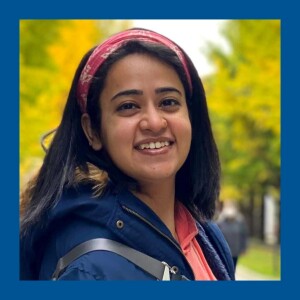
Thursday Nov 24, 2022
Thursday Nov 24, 2022
This week on Papa PhD, I'm sharing the story of someone I've had the pleasure to mentor during her PhD to non-academic job transition - Anushka Khasnobish.I want to thank Anushka for suggesting to share this testimonial on the show and for the chance to reflect on a string of conversations that took place over a number of months and to make sense of them in retrospect.While you're here, I'll take the opportunity to announce that Papa PhD has joined the Podcast 2.0 initiative and is now set up to receive boosts from you, the listener! A boost is a value for value (V4V) contribution in Satoshis (or Sats), the smallest existing Bitcoin denomination. All received boosts will get a shoutout on the show, in appreciation for your support. Please check out the Fountain Podcast App that supports Podcast 2.0 initiatives and boost the show .Also, I'd love to get to know you better. If you have 60 seconds please fill out the listener survey in this link. Donate to the show and Support this podcast.Send a Sticker Get a Sticker: Send me your show sticker, and I will send you a Papa PhD Sticker. I'd love to have a wall of podfriend stickers!
VIDEO
https://youtu.be/w_EIEdWfsYY?sub_confirmation=1Anushka Khasnobish oversees scientific communications as Innovation Evangelist at TCS research. In 2021, she graduated with a doctorate from Okayama University, Japan. Her research was in the field of microbiome sciences where she worked on establishing a link between the community of microbes in our saliva and non-oral diseases. At this moment Anushka is trying to learn as much as she can about scientific communications, photography and a little bit of French language.Since the penultimate year of her PhD, she has been working with Useful Science contributors, editors and podcast hosts to break down research papers into bit-size useful summaries that one can incorporate in their lives right away. Anushka has a great desire to leverage her scientific experience and personal skills in projects involving scientific communications, intellectual property rights and science outreach.
Thank you, Anushka Khasnobish !
If you enjoyed this conversation with Anushka, let her know by clicking the link below and leaving her a message on LinkedIn:Send Anushka Khasnobish a thank you message on LinkedIn!Click here to share your key take-away from this interview with David!
This episode’s resources:
Anushka Khasnobish | TwitterAnushka Khasnobish | LinkedinAnushka Khasnobish | Instagram
You might also like the following episodes:
Martha Boeglin – Unlocking Your Thesis Writing Super PowersAlbertha Joseph-Alexander – Using Scicomm to Make a DifferenceTerence Milstead – A Roadmap to Pivoting Into the Private SectorNatalia Bielczyk – Figuring Out Where You Fit in the Job Market as a PhDAs always, if you find value in Papa PhD and in the content I bring you every week and if you're not a nerd like me and don't want to delve into Podcast 2.0, click on one of the buttons below and send some of that value back to me by becoming a supporter on Patreon or by buying me a coffee :)
Support the show on Patreon !
Or buy me a coffee :)
Get the Papa PhD Career Readiness Tool kit !
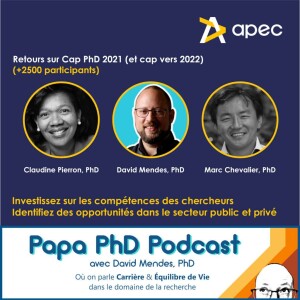
Thursday Nov 17, 2022
Thursday Nov 17, 2022
Cette semaine sur Papa PhD, une enrichissante conversation avec Claudine Pierron de l'APEC et avec Marc Chevalier, ami du podcast et champion de la promotion du succès professionnel des PhD.Au programme, un retour sur l'évènement Cap PhD, qui a eu lieu en 2021, et l'annonce de Cap Docteurs, la mouture revue et améliorée qui aura lieu les 23 et 24 novembre 2022.Ça t'intéresse ? Inscris-toi gratuitement ici : PapaPhD.com/capdocteurs
VIDÉO
https://youtu.be/VFRjU4K5cUIC'est quoi, Cap Docteurs ?C'est un évènement en ligne dont l'objectif est de vous offrir des pistes à suivre, des outils et des occasions de réseautage qui vous aideront à préparer à votre transition vers la vie professionnelle.On y parlera de :Carrières dans la fonction publique / l'administrationCarrières extra-académiques / dans le privéCompétences transversesIdentification des docteur.e.s en tant qu'experts scientifiquesÉvolution du recrutement des docteur.e.s et des compétences recherchéesÉtat actuel de l'emploi des docteur.e.sMobilité internationale des docteur.e.s Si tu es à la maîtrise, au doctorat ou si tu es postdoc, ne manque pas cette occasion de rencontrer tes pairs et de faire un pas important vers une transition éclairée au prochain chapitre de ton parcours professionnel.Bonne écoute !
Les ressources de cet épisode :
Claudine Pierron | LinkedInMarc Chevalier | LinkedInOutils de l'APEC | Site web
Merci, Claudine et Marc !
Si cet entretien avec Claudine Pierron et Marc Chevalier t'a plu, fais-nous en part en cliquant sur les liens ci-dessous et en nous laissant un message :Clique ici pour remercier Claudine Pierron sur LinkedIn !Clique ici pour remercier Marc Chevalier sur LinkedIn !Clique ici pour partager avec David le principal message que tu retiens de cet épisode !Si tu trouves de la valeur dans le contenu que je t'apporte chaque semaine, clique sur l'un des boutons ci-dessous et renvoie-moi l'ascenceur :)
Don sécuritaire sur PayPal
Deviens supporter sur Patreon !
Ou paye-moi un café :)
Tu aimeras aussi ces épisodes :
Charlotte Hendryckx – L'aventure du doctorat à l'étranger : PapaPhD.com/193Erika Dupont – Le parcours doctoral est-il au service de chercheurs ? : PapaPhD.com/175Jean-Patrick Toussaint – Mieux préparer les doctorants à l'emploi : PapaPhD.com/155Myriam Beaudry - L'importance de rencontrer d'autres chercheur.e.s pendant ton doctorat : PapaPhD.com/183
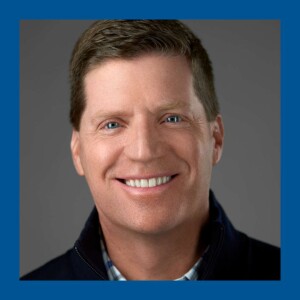
Thursday Nov 10, 2022
Thursday Nov 10, 2022
200 episodes… I couldn’t have imagined I’d come this far when I launched back in 2019, but a little over 3 years in, it feels almost surreal.If you’re new to the show, welcome, and enjoy all the content! If you’re a long time fan, thank you for dropping by week after week! And if you want to show me some love, go to buymeacoffee.com/papaphd and donate. ????Every little bit helps!Again thank you. In this week’s amazing episode with Terence Milstead, he lays out his complete blueprint for a successful career transition from academia into the private sector.Happy listening!
VIDEO
https://youtu.be/BGKala5PT_8?sub_confirmation=1Terence Milstead received his Ph.D. in Urban and Regional Planning in 2008 from Florida State University where his research was focused on factors that influence people to invest time, money and emotional energy into upgrading their dwellings, even in unstable housing markets. This question led him to the former Soviet Union on a Fulbright and subsequently to other parts of the globe. But it also ignited a deep interest in qualitative research and the power of deeply listening to others.After completing his Ph.D. Terence started down the academic career path. However, after a few years he realized that a full-time career in academia was not what he had envisioned. So, in 20014, he transitioned to private sector, research-based consulting, relocating to the East Coat. But the path from academic to private-sector consultant was a crooked one and didn't happen overnight. In this episode Terence shares how he came up with a transition plan that ultimately led him to his current position as Head of Qualitative Insights at a global strategic consulting firm based in Washington D.C.
Thank you, Terence Milstead !
If you enjoyed this conversation with Terence, let him know by clicking the link below and leaving him a message on LinkedIn:Send Terence Milstead a thank you message on LinkedIn!Click here to share your key take-away from this interview with David!
This episode’s resources:
Terence Milstead | FacebookTerence Milstead | LinkedinTerence Milstead | Website
You might also like the following episodes:
Martha Boeglin – Unlocking Your Thesis Writing Super PowersAlbertha Joseph-Alexander – Using Scicomm to Make a DifferenceDavid Giltner – Reconciling the Research and Development MindsetsNatalia Bielczyk – Figuring Out Where You Fit in the Job Market as a PhDAs always, if you find value in Papa PhD and in the content I bring you every week, click on one of the buttons below and send some of that value back to me by becoming a supporter on Patreon or by buying me a coffee :) Now with the added perk of receiving the brand new Papa PhD and PhD Dojo stickers!
Support the show on Patreon !
Or buy me a coffee :)
Get the Papa PhD Career Readiness Tool kit !
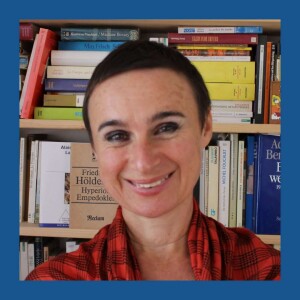
Thursday Nov 03, 2022
Thursday Nov 03, 2022
Do you struggle to sit down and write your thesis? Is the process painful to you?
Then join me in this interview a specialist, a "thesis whisperer" of sorts - Martha Boeglin of Scriptoria.
During my conversation with Martha, we discuss this inevitable, yet often gruesome task that is thesis writing, and Martha shares her know-how and a number of techniques and strategies to make the exercise a pleasant and successful one.
VIDEO
https://youtu.be/Wu_N2gvWz6U?sub_confirmation=1
When she wanted to write her thesis in Philosophy, Martha Boeglin was paralyzed for many months by the fear of the blank page.
When she eventually understood that the fear of the blank page is normal, that almost every researcher is concerned by writer’s block… ant that writing problems are tabou at university, she started to investigate the phenomenon of writing.
One discovery changed her life: writer’s block belongs to the writing process – and there are lots of creative writing techniques to overcome them.
More: some writing techniques hold an almost magical power.
Why are they not taught at university ?
Her passion for writing techniques was born. With a double consequence: first, once she overcame that initial writer’s block, she was able to write her thesis – and worte it in a wave of euphoria.
Second, once she got her Dr. Titel, she created Scriptoria, the writing workshops for PhD students in 2002.
Its goal? To make writing a thesis easier: when you know the right techniques, writing is no longer a chore - it can even become a source of joy.
Thank you, Martha Boeglin !
If you enjoyed this conversation with Martha, let her know by clicking the link below and leaving her a message on Twitter:
Send Martha Boeglin a thank you message on Twitter!
Click here to share your key take-away from this interview with David!
This episode’s resources:
Martha Boeglin | LinkedIn
Martha Boeglin | Twitter
Scriptoria | Scriptoria.org | Groupe Facebook | Youtube
You might also like the following episodes:
Albertha Joseph-Alexander – Using SciComm to Make a Difference
David Giltner – Reconciling the Research and Development Mindsets
Jen Polk – Are You a Sellout if You Leave Academia After Your PhD?
Natalia Bielczyk – Figuring Out Where You Fit in the Job Market as a PhD
As always, if you find value in Papa PhD and in the content I bring you every week, click on one of the buttons below and send some of that value back to me by becoming a supporter on Patreon or by buying me a coffee :) Now with the added perk of receiving the brand new Papa PhD and PhD Dojo stickers!
Support the show on Patreon !
Or buy me a coffee :)
Get the Papa PhD Career Readiness Tool kit !
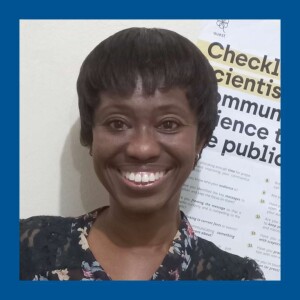
Thursday Oct 27, 2022
Thursday Oct 27, 2022
On this episode of Papa PhD, I bring you my recent conversation about science communication with Albertha Joseph-Alexander and about how scicomm has impacted her researcher career.
If you are curious about science content creation and about the scicomm space, Albertha shares her journey and her lessons learned, so far.
Happy listening!
VIDEO
https://youtu.be/yMjkOk00SRA?sub_confirmation=1
Dr. Albertha Joseph-Alexander has a PhD in Plant Science from the University of the West Indies, St. Augustine Campus, in Trinidad and Tobago.
Albertha has a natural ability to tell stories and as a result, her enthusiasm for science communication allows her to simultaneously enjoy science and storytelling while disseminating knowledge for the benefit of society. Presently she is producing her first documentary.
Thank you, Albertha Joseph-Alexander !
If you enjoyed this conversation with Albertha, let her know by clicking the link below and leaving her a message on Twitter:
Send Albertha Joseph-Alexander a thank you message on Twitter!
Click here to share your key take-away from this interview with David!
This episode’s resources:
Albertha Joseph-Alexander | Twitter
Albertha Joseph-Alexander | Linkedin
Albertha Joseph-Alexander | Facebook
You might also like the following episodes:
David Giltner – Reconciling the Research and Development Mindsets
Katya Park – Staying True to Your Life Plans During the PhD
Matthias Hombauer – Being a PhD, a Father and an Entrepreneur
Natalia Bielczyk – Figuring Out Where You Fit in the Job Market as a PhD
As always, if you find value in Papa PhD and in the content I bring you every week, click on one of the buttons below and send some of that value back to me by becoming a supporter on Patreon or by buying me a coffee :) Now with the added perk of receiving the brand new Papa PhD and PhD Dojo stickers!
Support the show on Patreon !
Or buy me a coffee :)
Get the Papa PhD Career Readiness Tool kit !
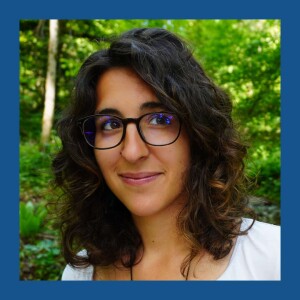
Thursday Oct 20, 2022
Thursday Oct 20, 2022
Cette semaine sur Papa PhD, je t'apporte ma récente conversation avec Julie Lopes, accompagnatrice de doctorant.e.s.La thématique - profiter du doctorat pour mieux se connaître et profiter de mieux se connaître pour avoir un trajet plus aligné et plus productif pendant la thèse.En fin d'épisode, Julie nous fait expérimenter un exercice de recentrage qu'elle utilise avec les personnes qu'elle accompagne. Si tu as besoin de calmer ton corps et ton esprit, ne le manque surtout pas !
VIDÉO
https://youtu.be/NnyUIvVg7Y0Julie Lopes est docteure en microbiologie reconvertie dans l'entrepreneuriat auprès des étudiant·e·s, doctorant·e·s et docteur·e·s.Sa mission est de les accompagner vers une expansion d'eux-mêmes afin qu'ils choisissent un avenir dirigé par leur cœur plutôt que par la peur !
Les ressources de cet épisode :
Julie Lopes | LinkedInJulie Lopes | Site webJulie Lopes | Instagram
Merci Julie !
Si cet entretien avec Julie Lopes t'a plu, fais-nous en part en cliquant sur les liens ci-dessous et en nous laissant un message :Clique ici pour remercier Julie Lopes sur LinkedIn !Clique ici pour partager avec David le principal message que tu retiens de cet épisode !Si tu trouves de la valeur dans le contenu que je t'apporte chaque semaine, clique sur l'un des boutons ci-dessous et renvoie-moi l'ascenceur :)
Don sécuritaire sur PayPal
Deviens supporter sur Patreon !
Ou paye-moi un café :)
Tu aimeras aussi ces épisodes :
Charlotte Hendryckx – L'aventure du doctorat à l'étranger : PapaPhD.com/193Erika Dupont – Le parcours doctoral est-il au service de chercheurs ? : PapaPhD.com/175Jean-Patrick Toussaint – Mieux préparer les doctorants à l'emploi : PapaPhD.com/155Myriam Beaudry - L'importance de rencontrer d'autres chercheur.e.s pendant ton doctorat : PapaPhD.com/183
